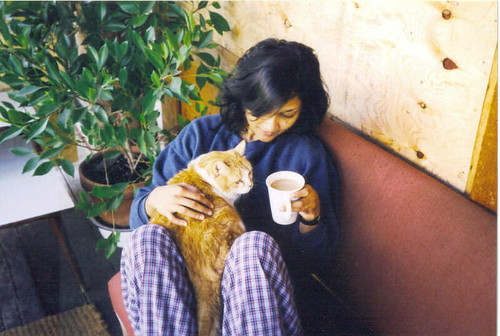Omnivore's Dilemma

The Koala bear doesn't worry about what to eat: if it looks, smells and tastes like eucalyptus, it must be dinner. Koala's culinary preferences are hard-wired in its genes.
When sitting at the top of the food chain with the ability to eat just about anything nature has to offer, deciding what to eat may not be simple or obvious, and in fact can cause a lot of anxiety, especially when some of the available options could potentially make you sick, or worse, even kill you.
This in short is the Omnivore's Dilemma, a term given by Paul Rozin, (University of Pennsylvania research psychologist), a concept apparently noted long ago by eminent writers like Rousseau and Brillat-Savarin.
And, this is how Michael Pollan got me hooked on his the Omnivore's Dilemma: A natural history of four meals, a book I couldn't easily put down despite its seemingly mundane subject matter: what's for dinner?
The book is presented in three sections: Industrial Eating (Corn), Pastoral Eating (Grass) and Personal: The Forest (Animals).
The section on Corn to me was eye-opening. Corn pervades every processed food (industrial) consumed in the US. Zea Mays is an incredible plant. Instead of grass, even the cattle and poultry are fed corn, which of course makes them sick, so they are drugged to counter this, and eventually the corn gets back to humans who consume these cattle and poultry. HFCS (high fructose corn syrup) is a staple in just about every processed food one can find. The policies surrounding industrial agriculture was quite shocking. Corn apparently provides a very high ROI (return on investment) and to keep it from getting abundant and plentiful, several strategies have been adopted which frankly seem unbelievable to me.
The pastoral section was informative on Organic foods. "Organic stood for everything industrial was not". However industrial organic is not sustainable, not if it has to be transported using petroleum-fueled vehicles. Locally grown sustainable organic farms are the best bet. "Buying organic asparagus flown in from Argentina is no more morally defensible than eating a locally and sustainably raised cow". This section reinforced my food philosophy: buying locally from nearby farms and farmer's markets is not a fashion statement, it is sensible and imperative considering today's crisis surrounding food.
A countercuisine based on whole grains and unprocessed organic ingredients rose up to challenge conventional industrial "white bread" food.
...
brown foods of all kinds - rice, bread, wheat, eggs, soy, sugar, soy sauce, tamari - were deemed morally superior to white foods.
The third section on industrial animal factory brought out facts that many of us seem to be aware of but conveniently want to overlook.
The industrial animal factory offers a nightmarish glimpse of what capitalism is capable of in the absence of any moral or regulatory constraint whatsoever.The views in the chapter on Ethics of Eating Animals did not align well with my personal philosophy. I find that in today's world, hunting for sport or food is inhumane.
Half the dogs will receive Christmas presents this year, yet few of us ever pause to consider the life of the pig - an animal easily as intelligent as a dog - that becomes a Christmas ham.
We are what we eat. We are connected to the soil, plant, animal and everything that surrounds us. The food choices we make affects not just us but the world around us, even though it may not be obvious right away. This book was funny and informative, frank and thought-provoking, well-written and engaging. I learnt a lot from this book and am absolutely impressed by the author's research and clarity of thought.
Labels: book review, non-fiction, omnivore's dilemma


1 Comments:
I'd never thought about it but you're right--the corn is everywhere.
Post a Comment
<< Home